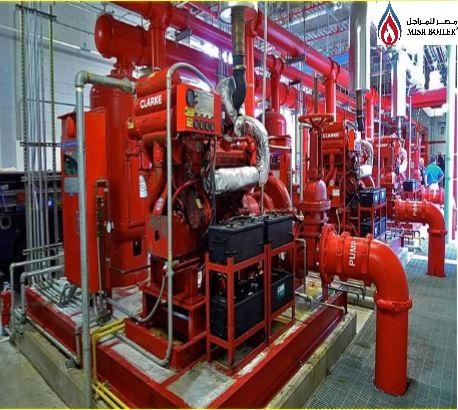7 Essential Steps to Register Your Business in Dubai Successfully
Introduction
Dubai has evolved into one of the world’s most dynamic business destinations — a global hub where innovation meets opportunity. Its strategic location, tax benefits, and modern infrastructure attract thousands of entrepreneurs every year. However, while the rewards of launching a business here are immense, navigating the registration process can be complex without the right guidance.
Whether you’re a foreign investor or a local entrepreneur, understanding the legal, administrative, and procedural steps is essential. This comprehensive guide walks you through the 7 essential steps to register your business in Dubai successfully, ensuring that you make informed decisions and set your company on the path to growth and profitability.
Step 1: Choose the Right Business Structure
The first and most crucial step in registering your business in Dubai is selecting the appropriate business structure. Your choice determines everything from ownership rights and taxation to visa eligibility and operational flexibility.
In Dubai, there are primarily three types of business jurisdictions:
-
Mainland – Offers freedom to trade across the UAE and take government contracts.
-
Free Zone – Provides 100% foreign ownership, tax exemptions, and simplified setup processes.
-
Offshore – Ideal for international business operations with no local trading.
Each jurisdiction has its own set of rules and benefits. For instance, if your focus is on local clients, a Mainland company may be the right choice. However, if your goal is international trading or digital services, a Free Zone setup could offer better flexibility and tax advantages.
The key here is to analyze your business goals and consult experts who can align your structure with your long-term plans.
Step 2: Research the Market and Get Professional Assistance
Before diving into documentation, you must conduct market research to understand the demand, competition, and licensing requirements for your chosen business activity. Dubai’s business environment is vibrant but also highly competitive, so knowing your target audience and industry regulations is vital.
For entrepreneurs new to the UAE, working with professionals can save time and prevent costly errors. You can find guidance and support from the list of business setup companies in Dubai — firms that specialize in helping investors navigate legal procedures, documentation, and licensing. These companies not only simplify complex tasks but also ensure that every step of the registration process complies with UAE law.
Whether you choose a Dubai Mainland license or a Free Zone setup, partnering with an experienced business setup company can make all the difference in achieving a seamless registration experience.
Step 3: Decide on a Business Activity
Your next step is to clearly define your business activity. Dubai’s Department of Economic Development (DED) maintains a list of over 2,000 business activities across various sectors — from trading and manufacturing to consulting and technology.
Each license in Dubai is tied to a specific set of activities. Therefore, selecting the right category is crucial to avoid legal issues later. For instance:
-
Commercial License – For buying and selling goods.
-
Professional License – For service-oriented activities like consultancy, design, or IT.
-
Industrial License – For manufacturing or production-based businesses.
Once you have chosen your activity, it will influence your company name, jurisdiction, and license type. Inaccurate categorization can delay approvals, so consulting a professional before submitting your documents is highly recommended.
Step 4: Choose a Trade Name and Get It Approved
A company’s trade name is its identity in the business world. In Dubai, your trade name must be unique, relevant, and adhere to the UAE’s naming regulations. The Department of Economic Development (DED) oversees trade name approvals and enforces certain restrictions:
-
The name cannot contain offensive or religious references.
-
It should not duplicate an existing registered name.
-
If you’re using a person’s name, it must be the full name (no initials).
Once your trade name is approved, you’ll receive a Trade Name Reservation Certificate, which is required to proceed with the next steps of your business registration.
Your trade name not only represents your brand but also reflects your credibility in the Dubai market. Hence, ensure that it aligns with your business identity and future expansion goals.
Step 5: Apply for Initial Approval and Prepare Legal Documents
After choosing your trade name and defining your activity, the next step is to obtain initial approval from the DED or relevant Free Zone authority. This approval indicates that the UAE government has no objection to you starting your business in Dubai.
At this stage, you’ll need to prepare essential legal documents, including:
-
Passport copies of all shareholders and partners
-
No Objection Certificate (NOC) if you’re a resident under a sponsor
-
Draft of the Memorandum of Association (MOA) or Local Service Agent Agreement
-
Trade name reservation certificate
-
Business plan (for some Free Zones or specialized licenses)
Once these documents are ready and submitted, you’ll receive your initial approval certificate — a critical milestone in your business setup process.
Step 6: Select a Business Location and Secure Office Space
Choosing the right business location is another key step in registering your business in Dubai. The location you select depends on your jurisdiction, business model, and operational needs.
For Mainland companies, you must lease an office space that complies with the DED’s requirements. The Ejari (tenancy contract) must be registered and submitted with your license application.
In Free Zones, you can choose from various flexible options such as:
-
Flexi-desks or shared workspaces
-
Private offices
-
Warehouses or industrial units
Each Free Zone offers packages tailored to different business sizes and industries. For instance, the Dubai Multi Commodities Centre (DMCC) is ideal for trade-based companies, while Dubai Internet City (DIC) caters to IT and tech startups.
Your office location not only serves as your legal business address but also plays a role in defining your company’s professional image.
Step 7: Obtain Your Business License and Register for Visas
The final step in your business registration journey is obtaining your business license. Once all previous steps are completed — including trade name approval, documentation, and office leasing — you can submit your application for a license to the DED (for Mainland) or the relevant Free Zone authority.
Depending on your chosen activity, you may need additional approvals from specific ministries or departments, such as:
-
The Ministry of Health (for healthcare businesses)
-
The Dubai Municipality (for construction or food-related activities)
-
The Telecommunications Regulatory Authority (for tech-based companies)
After receiving your license, you can officially start your operations, open a corporate bank account, and apply for visas for yourself and your employees.
Visa eligibility depends on the size of your business, office space, and jurisdiction. Free Zones usually offer specific visa packages, while Mainland companies can apply for multiple visas based on their office space and workforce size.
Common Mistakes to Avoid During Business Registration
Many entrepreneurs make avoidable errors that delay or complicate their registration process. Here are some key mistakes to watch out for:
-
Choosing the wrong jurisdiction: Always align your business model with the jurisdiction that supports your goals.
-
Ignoring compliance rules: Each Free Zone has unique documentation and renewal requirements.
-
Failing to budget for hidden costs: Consider visa fees, lease renewals, and sponsorship expenses.
-
Skipping professional assistance: Using reputable business setup consultants can save both time and money.
By avoiding these pitfalls, you’ll ensure a smooth and legally compliant registration process.
Benefits of Registering a Business in Dubai
Registering your business in Dubai comes with numerous advantages, including:
-
Tax Benefits: 0% corporate and personal income tax in most Free Zones.
-
Strategic Location: Access to global markets across Asia, Africa, and Europe.
-
Modern Infrastructure: Advanced logistics, technology, and business facilities.
-
Strong Legal Framework: Transparent regulations supporting foreign investors.
-
Diverse Talent Pool: Access to skilled professionals from across the globe.
These benefits make Dubai one of the most investor-friendly destinations for startups and established enterprises alike.
Final Thoughts
Registering a business in Dubai can seem daunting at first, but with proper planning and expert guidance, it’s a highly rewarding journey. By following these 7 essential steps, you can navigate the process efficiently and start operating in one of the world’s most prosperous economies.From choosing the right business structure to obtaining your final license, each step plays a vital role in shaping your company’s success. Whether you’re a solo entrepreneur or an international investor, the key lies in preparation, compliance, and leveraging professional expertise from the trusted list of business setup companies in Dubai.With Dubai’s supportive business environment and forward-thinking government policies, there has never been a better time to start your entrepreneurial journey in the UAE.






